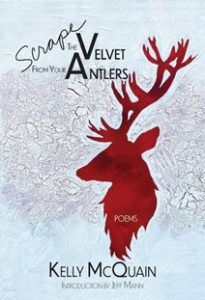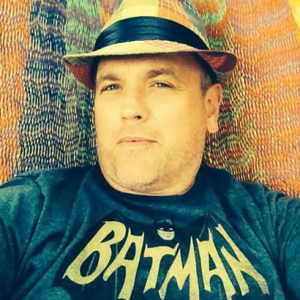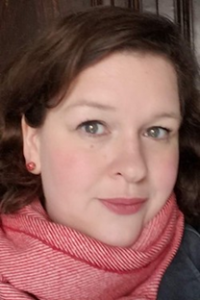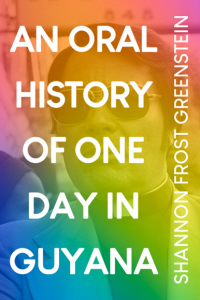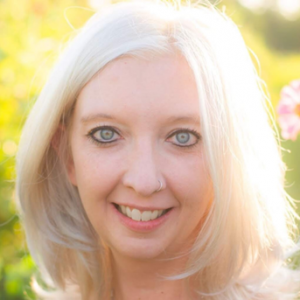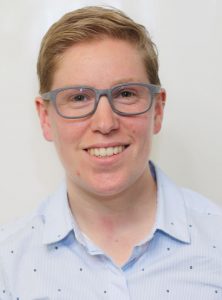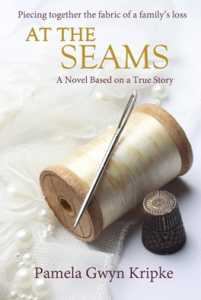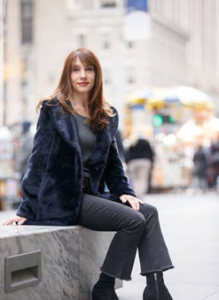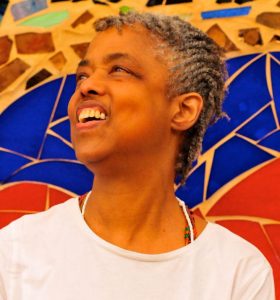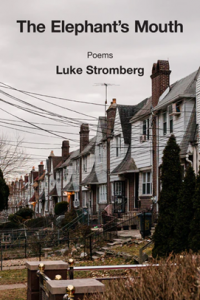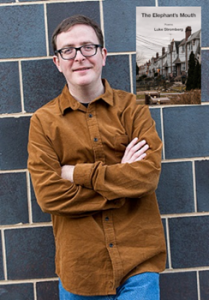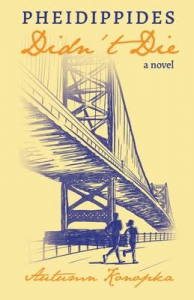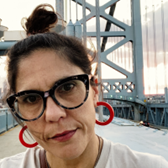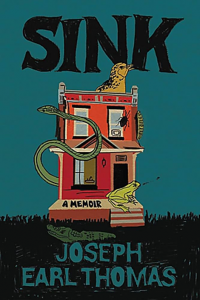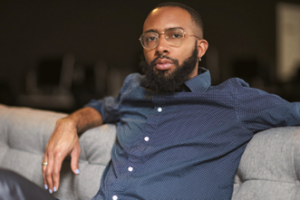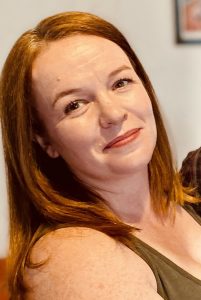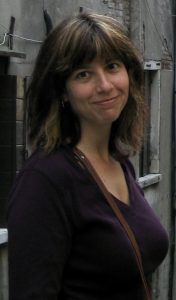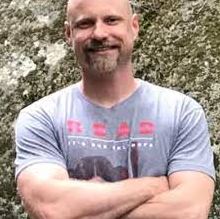
Interview by Jonathan Kemmerer-Scovner, Writer
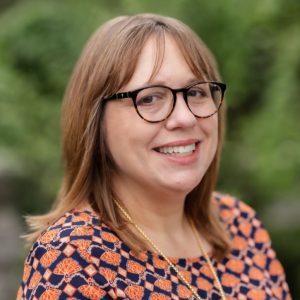
Jenny Lowman is a true advocate for literacy. She has worked in the nonprofit arena of Philadelphia for over 15 years, having served as the executive director for the West Philadelphia Alliance for Children (WePAC), promoting childhood literacy in Philadelphia public elementary schools through reopening and staffing libraries, and prior to that, as an attorney at Philadelphia’s Education Law Center.
Currently, she serves as a school board member in the Cheltenham School District and, along with several others, has founded the Philadelphia Alliance to Restore School Librarians (PARSL), a grassroots organization dedicated to returning certified school librarians back to all schools in the School District of Philadelphia.
Do you remember the first book you read that made you love reading?
It was this little Richard Scarry book from my public library growing up, On the Farm. It was a little square, maybe 3 x 3 inches. I loved that book so much that my parents bought it from the library; I still have it to this day!
My mom was an English teacher, so I was surrounded by books my entire life, classic literature all over the house. 1984, Great Expectations, The Count of Monte Cristo… At some point or another, she’d taught them all. I always had access to books, and I could read whatever I wanted.
That’s how this all started for me, just having access to a wide range of books, and not being told what I could or could not read.
You attended public school growing up?
Yup, all the way. There weren’t a lot of other options in the Lehigh Valley, where I’m from.
I remember our elementary school was a relatively new building, and they’d somehow forgotten to plan for a library, so they had to create one out of the janitor’s storage closet, this small, windowless room that had maybe six shelves and a few tables – but we had a librarian.
My middle school, though, had a big library that we used a lot, and my high school did as well. We learned the card catalog, micro-fiche, the Dewey Decimal system… all that wonderful stuff. It wasn’t until I was a senior that we had a computer lab for the first time.
The role of the public school librarian has evolved a lot since those days.
Definitely. Librarians are still there to make the world open to children, that part hasn’t changed, but today their role is even more important, because they’re teaching digital media literacy as well. They’re teaching children how to be good and informed consumers of information, to not just find a source, but to discern between sources. If there isn’t a certified librarian who’s learned those skills themselves, students are really missing out.
That seems like an enormously useful skill to have in this day-and-age. There are lots of adults I know who could’ve used that.
The librarians I’ve been fortunate enough to work with through PARSL describe their libraries as safe spaces, which is also something that’s evolved. There are just so many more issues kids today struggle with, and there are amazing books available to address them. Books that explain disabilities such as autism and dyslexia, books about grief and loss, books about gender identity, all kinds of books to help children understand the world around them. All of these are things that librarians today bring to bear.
In my own school district, the librarian at the middle school has turned the library (called the Learning Commons) into an incredible space with an amazing collection that she’s curated with an impressively diverse selection. She also started a Project Lit book group that had over 90 students participating, the last time I checked.
It’s a real holistic approach. It’s the concept of providing “Mirrors, Windows and Sliding Glass Doors,” first identified and described by Dr. Rudine Sims Bishop in 1990. You want children to be able to read things that reflect who they are, that show them something else, and then provide a door that they can walk through into a different world.
Oh, I like that a lot.
I work with one retired librarian who says that what people don’t realize is, especially for elementary school librarians, they’re the only person in that building who sees a kid from Kindergarten to 5th grade, and in the case of a lot of Philadelphia schools which are K-8, they know these children for nine full, consecutive years.
All of these reasons are why it’s so heartbreaking that over 50 school districts in Pennsylvania currently don’t have any librarians at all.
How did this become an advocacy issue for you?
From working at the Education Law Center. I’d seen how disparate and inequitable the funding for public schools in Pennsylvania was, how some school districts would have all these amazing resources for their students and others had practically nothing. Money really does make a difference. It’s a tremendous injustice for schools not to be able to afford basic instructional services like school librarians to educate their students.
What exactly is the current status of the libraries in the School District of Philadelphia?
Currently, there’s one full-time equivalent school librarian working in the district, which means there are 3 to 4 school librarians who work part-time in a few buildings. One librarian for 113,000+ students in 217 buildings. This is down from 176 school librarians for about 230 buildings in 1991.
So from 176 librarians down to 1. Got it.
Dr. Constance Clayton, who died recently, was the district’s superintendent from 1982 to 1993. She’d made it a priority to have school librarians in as many district buildings as possible. She’d understood that the only place many of the district’s students were going to have access to books to take and read at home was at school.
What happened to erode that?
Unfortunately, Dr. William Hite, who was the district’s superintendent for a decade up until 2022, appeared to have no use for school libraries or librarians. He seemed to have convinced himself that the school district didn’t really need them or else they were a luxury the district couldn’t afford. He would say things like, Teachers have classroom libraries, kids have access to plenty of books. But he didn’t seem to have any understanding of what school librarians actually do, or what students were missing by not receiving instruction from them.
But the loss of school librarian positions really started back in the late 1990’s, when Dr. David Hornbeck was superintendent of the district from 1994 to 2000. Dr. Hornbeck had recognized that the district needed more money from the state to provide its students with an adequate education, but then-Governor Ridge refused. While Dr. Hornbeck was fighting for more state funding, he switched the district over to site-based budgeting. Meaning, the district gave each school a certain pot of money, then central administration would say to the principals, essentially, Here’s all your money, budget accordingly.
Of course, the money was never enough, and with so many other positions and programs, librarians just slowly got phased out. That’s how we found ourselves in this situation.
And the district still uses site-based budgeting! That’s why PARSL is asking that any funding for new librarian positions come out of the district’s central budget, so that principals don’t need to choose between funding a school librarian or an assistant principal’s position, for instance.
But are the libraries themselves at least still accessible to the children?
Usually not. If a school had a library at one point, then that room has either been repurposed or is locked and is simply off-limits.
That’s heartbreaking!
It is, and we need people to know about it. PARSL met a few months ago with someone from the Free Library of Philadelphia, and I expressed my frustration to them that more organizations which are concerned about improving childhood literacy in the city aren’t standing up and saying, ‘And part of this is having an actual, functioning library with a certified school librarian in every public school!’
There are some schools – mostly K-8 buildings – that have other organizations which come in and run their libraries for them, like Historic Fair Hill. They now operate four school libraries in North Philly. The Friends of H.A. Brown School is reopening the library in that school. The John B. Kelly School has a very active volunteer-led library program. All told, there are about 30-35 elementary schools in the district which have functioning library programs, although they don’t have certified librarians leading those programs.
When I worked for the West Philadelphia Alliance for Children (WePAC), that was (and is) WePAC’s primary objective, to reopen libraries in K-8 schools in the district using volunteers. WePAC currently operates volunteer-run libraries in 13 district schools, which is a huge accomplishment for the current staff and volunteer crew. I actually started out with WePAC as a volunteer in the library at the Blankenburg School. I loved reading to the kids and helping them pick out books to take home. I also wished the library could be open more than twice a week so that all kids in the building could take advantage of it – not just kids in the lower grades.
What kind of things would you do for WePAC?
When we were reopening a library, before we could do anything else, we had to weed through the library collection, because some of the books were ancient.
There were some that were moldy and waterlogged, and others that were sexist, racist and just flat-out wrong on a variety of topics. It was a real snapshot of a period. For example, I found a book from the 1950’s about friction. You might wonder how a topic as benign as friction could possibly be problematic, and then you open the first page: “Mother creates friction when she washes a pan! Father creates friction when he walks home from work and wipes his feet on the door mat!”
Then there were the books from the 1970’s that you could tell were really trying so hard to be progressive and inclusive, like, “Look, Lucy learned how to fish, just like her brothers!”
Then there were all the great relics we’d come across.
One had a card catalog which was so beautiful and in such great shape, we left it there because the kids would have otherwise never seen one. I remember going through the drawers of this beautiful, wooden desk and found what must have been some of the last, stamped cards from books that had been taken out. It was so cool, but also so sad, like, Oh, this was once a functioning library.
Then there were other obstacles that had occurred during the pandemic, not the least of which was that the district had taken some of their federal money and used it to paint a lot of their library spaces, which is great… Except when they did this, they took all the books off the shelves and then threw them back on. In no order. Whatsoever.
Oh my god, that sounds like a librarian’s nightmare.
Oh, it was a total nightmare for anyone who values organization in the slightest. There were four or five schools with WePAC-operated libraries in that situation, so you’re talking a massive, massive undertaking for a small, volunteer-driven organization.
But the larger issue was that this was just too important an aspect of what should be key part of a child’s educational experience for the School District of Philadelphia to continue to, essentially, rely on the kindness of strangers, as it were.
Also, even in the best-case scenario pre-COVID, most WePAC-run libraries were only open two or three days a week, maybe for four or five hours per day. Some of them were just one day a week for a couple of hours. So, when I say we were working to ‘reopen the libraries,’ that’s the most we could have hoped for. It was far from ideal, even if everything had been going our way.
What do the schools in the districts have to say about it?
Oh, there’s schools that want it, they desperately want it.
They tell us that the only reason they don’t have librarians is because they can’t afford them, that they’re not getting the money they would need from the state. Which is most definitely true, but every school administration sets its priorities, and the School District of Philadelphia could have made it a priority to return librarians to its schools, but they chose not to.
But what really motivated me to start thinking strategically about this issue was when the Philadelphia Inquirer published an article in October 2021 about a dedicated English teacher at Building 21, a high school in Philly, and how he had started a library on his own in the school with the help of his students, and how much the students loved the library space. In response, I wrote a Letter to the Editor which said that, as moving as that story is, the real issue is the lack of school librarians in the district. Yes, it’s wonderful what this amazing teacher has done, but it shouldn’t be necessary. Just like the volunteer-run libraries, it’s not sustainable and it’s not providing students with an educator trained in helping students learn to think critically, analyze information, and evaluate online sources – just a few of the skills taught by today’s school librarians.
The Inquirer printed it, and then several women reached out to me separately to let me know they were with me one hundred percent on this, and wanted to know what they could do to help fix this situation.
That was the beginning of the Philadelphia Alliance to Restore School Librarians (PARSL)
One of them, Deb Kachel, happened to be someone that I had already known a little from working at the Education Law Center. She’s a retired school librarian and is currently an online Affiliate Faculty member for Antioch University Seattle. She is also highly respected researcher in the field and has been a long-time member of Pennsylvania School Librarians Association’s (PSLA) Advocacy Committee. Right before COVID, PSLA had organized a rally on the steps of the School District of Philadelphia’s Administration Building at 440 North Broad with the teacher’s union for just that reason, to get attention to the fact that there weren’t any librarians in Philadelphia schools, and that this absolutely needed to change.
The second woman who reached out to me was Corinne Brady, the leader of a volunteer library program at the John B. Kelly School in Germantown. She told me she had two retired school librarians for volunteers, and they were running it more or less like a school library should be run. Which is great, except that Corinne understands that to ensure a functioning library for future Kelly students, the school needs a librarian in place.
The third woman was Dr. Barb Stripling. She is the retired director of school library programs in New York City, a past president of the American Librarians Association, and professor emerita with Syracuse University’s School of Information Studies. So, impressive credentials.
She’d already been working to rebuild the pool of school librarians in New York, but when she moved to Philadelphia, she could not believe the librarian situation here.
And then Deb Grill reached out. Deb is a retired Philly school librarian who experienced the phase-out of librarian positions in the district first-hand. For 34 years, she held positions in the Philadelphia School District as a reading teacher, certified school librarian, literacy coach and new teacher liaison. Deb has been a long-time advocate for better public schools for all children in Philadelphia as a member of the Alliance for Philadelphia Public Schools (APPS).
Our core committee consists of the five of us. We had our first Zoom meeting in March of 2022 and didn’t know if anyone else would even show up, but we ended up having 85 people join.
What steps have you been taking?
Well, we wrote to the superintendent and to the district’s governing body, the Board of Education, but never heard back. We wrote again. Nothing. Again. Nothing. We weren’t certain where to go.
Then a friend of mine, Maura McInerney, who is the legal director at the Education Law Center and who was on one of the committees that the new superintendent had formed to help create his strategic plan for the district, found herself at a meeting with him, and she went up to him afterward and told him he needed to start getting librarians back in the schools.
He walked her down the hall and gave her to his chief of staff, Sarah Galbally, who then met with PARSL in June 2023.
We laid out for her what we thought needed to happen, a graduated plan of returning librarians to schools.
Around the same time that we met with Sarah, we published a white paper – and we shared it with Philadelphia state legislators, city council members, candidates for office, District staff and other stakeholders. Over the summer and this fall, we’ve met with dozens of people about this issue. One state legislator, Representative Tarik Khan, who represents the Roxborough and East Falls areas of Philadelphia, has taken a particular interest in this effort, and we are working with him on two proposals, one at the state level and one at the local level, to restore school librarians to some schools in Philadelphia and around the state.
There’s also this federal grant that comes around every year, the Laura Bush 21st Century Librarian Program, which exists to fund projects that will grow more school librarians. So, we said, “Hey, School District of Philadelphia, you really should apply to this!” and, the district agreed! In September, PARSL’s Core Committee worked with the district’s Office of Grant Development to submit a request for funding to support the planning work needed to return school librarians to the district. As part of the process of preparing that proposal, the district has now identified a point person for this librarian restoration work, which is something we had been asking for since we started reaching out to the district.
And how exactly does that happen?
Well, the first thing that needs to happen is to develop a pipeline to get a pool of certified school librarians. Basically, there’s two ways to become a certified librarian in Pennsylvania, either you’re already a certified teacher and you take a PRAXIS test in library science, or you could get your Master of Library Science. But, either way, you first need your teaching certificate to become a certified school librarian, because librarians are first and foremost educators.
We’ve got to create a way for people interested in becoming school librarians to get that certification. Right now, we don’t have that, because Drexel had been the university that used to have that, but then they shut that certification program down when Philly stopped hiring school librarians. There’s still a master’s in library science program at Drexel for academic librarians, college level librarians… but not for school librarians.
Next, we must assess the status of library spaces in all district schools, because we know for a fact that some of them do have library spaces that are functional, particularly those supported by Historic Fair Hill, WePAC and certain “Friends of” groups and Home and School Associations.
Then there’s the budget situation.
How much money are we talking?
If certified school librarians were to fall from the sky tomorrow, we estimate it would take about $22 million to put one in every building in the district.
That may sound like a lot, but in the grand scheme of things, in a budget that’s already several billion dollars, it’s not that much. For a district where the primary goal is to improve the reading levels of its students, it makes both academic and economic sense.
We’re trying to get them to see that this is a really good investment, because there’s a ton of research from multiple library impact studies that show the direct correlation between having school librarians and an improvement in students’ academic achievement, particularly on reading tests, surprise, surprise. That’s what, in part, sparked the interest of the state rep we’re working with is.
The other thing that I think finally got us through to the district is that the superintendent, Dr. Watlington, has said he wants to make Philly the fastest improving school district in the country. So, we said, okay, well if you want to do that, you’d better get up to speed with this issue because DC is adding back librarians in every one of their schools. Boston is doing the same thing. So is LA. So is Clark County, Nevada. So is Minneapolis and New York City.
Are you saying Philly is in last place?
Yes, in terms of large urban school districts with any school librarians at all, I think it is fair to say that Philly is in last place. I think that was the other thing that got through to the district and the powers-that-be.
Have you thought about getting in touch with the writers for Abbot Elementary?
People have tried that!
There was one episode that really got some retired school librarians going on Twitter. The main characters were having a professional development day in their school’s library, and there were all these nice books on the shelves and these librarians tweeted at the show and at the actress Quinta Brunson and Shery Lee Ralph, who’s married to Philadelphia’s State Senator Hughes, ‘This is not realistic. You need to do an episode on how this really is.’
We keep trying to draw attention to the situation as best we can. We are persistent yet encouraging. We’ve said to the district, “You can make this a huge win. You can make this happen. It’s going to take years because it took years for all the librarians to disappear, but you can do it.”
It strikes me as you’re telling these stories, that for the most part, everyone you talk to is nothing but enthusiastic and positive. Where’s the resistance coming from? Is there a villain?
I’m not sure I would say there is a villain per se. What I’d say is that there have been decades of state underfunding and the resultant lack services in the district, that it’s hard for people to believe that things can change for the better. It will take time and effort to manage those changes, but they can happen through creative thinking, collaboration, and perseverance. Because like I said, many principals really want this. Administrators want this. Parents want this. The people in the district’s grants office, they were like, You don’t have to convince us, we want this to happen!
The powers that be in the district, in the city, and in the state have to understand that school librarians are not a luxury, they are a necessary component of an adequate K-12 education, and they need to be funded as a matter of equity.
To learn more about PARSL’s work, please visit our website or our Facebook page at https://www.facebook.com/groups/librarians4phillyschools. If you are interested in volunteering with PARSL – and we can always use PARSL – please sign up at https://www.restorephillylibrarians.org/volunteer or email parslibrarians@gmail.org.
